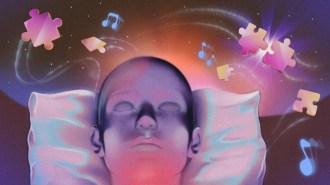Wiping out gut bacteria impairs brain
Nerve cell production, memory affected in mice treated with antibiotics

TO THE TOP Antibiotics (one shown) that target microbes in the gut influence what goes on in the brain, too, a mouse study suggests.
Thirteen Of Clubs/Flickr (CC BY-SA 2.0)







